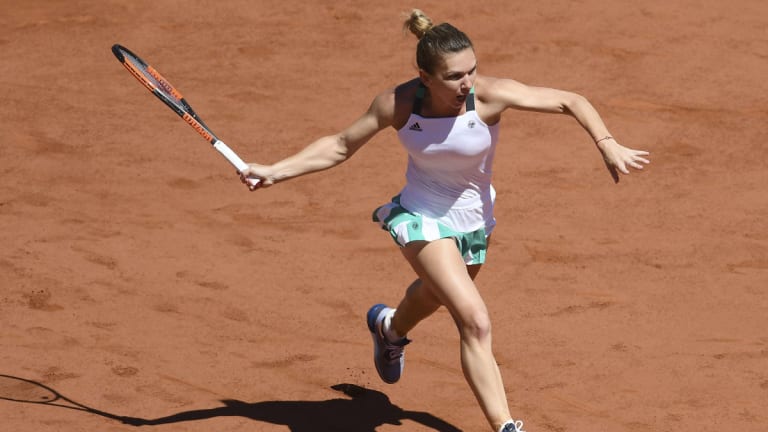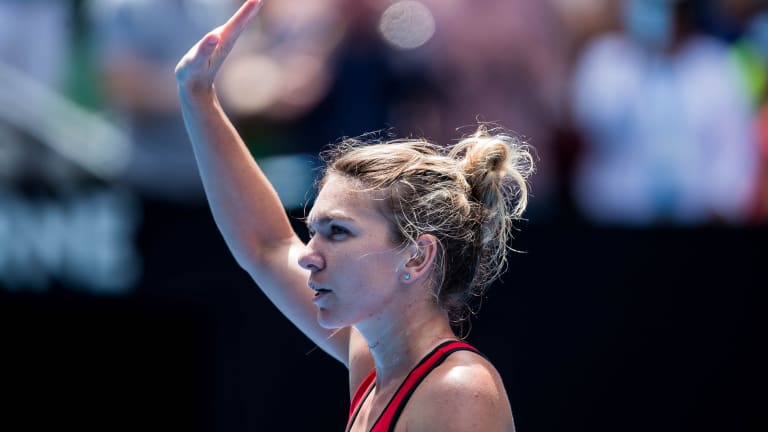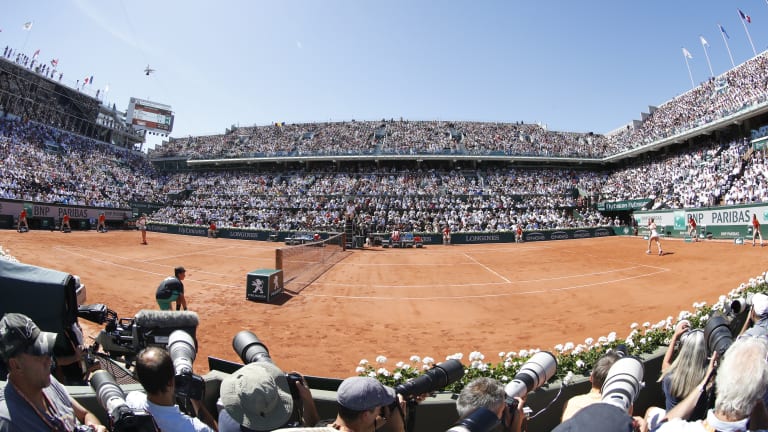Halep was born in Constanta, Romania, the oldest continuously inhabited city in the country and the largest port on the Black Sea. Tourists are drawn to the region’s mineral springs, but it’s unlikely that the rich waters have anything to do with Halep’s jackrabbit quickness or preternatural stamina. The former comes naturally, the latter is the product of her keen work ethic.
Those attributes enabled Halep to join the company of players who demonstrate that no matter how much the equipment, training regimens, court surfaces or the physical dimensions of the most successful players change, there’s always room in the game for the deft lightweight. And they are cherished.
“I like small players,” says Carillo. “I like to see a successful game that isn’t based purely on power or strength. I like quickness, and counter punching and retrieving. I like small ball.”
Ironically, Halep’s principal shortcoming hasn’t been physical, or related to her size. It’s been mental. Despite her gung-ho spirit and unwavering work ethic, Halep hasn’t always been the uncomplicated, happy warrior. She’s waged a long struggle against a deeply rooted streak of negativity. It has sometimes caused her to give less than was expected, and has led some critics to write her off as unreliable—or, worse yet, a choker.
The label haunted Halep long after she secured a place among the game’s elite following her six-title breakout season of 2013. One of the most striking low points was her desultory, 6–1, 6–3 loss to Flavia Pennetta in the semifinals of the 2015 US Open. Halep was ranked No. 2 at the time, 21 places higher than Pennetta.
Carillo’s long relationships with some well-known Romanians, including Ion Tiriac and former French Open champion Virginia Ruzici (now Halep’s agent) taught her that negativity and fatalism are not uncommon among Halep’s countrymen. She broached the subject with Halep shortly after the player hired the easygoing Aussie Darren Cahill as her coach. Would his disposition and influence help Halep overcome her dark streak?
“I don’t think I will change,” Halep told her. Then, she added as if it were self-explanatory, “I am Romanian.”
Halep’s negativity was so pronounced that it almost cost her Cahill early last season. In a novel case of coach firing employer, Cahill walked out on Halep following her tepid performance against Johanna Konta in the quarterfinals of the Miami Open.
“It was like a shock, because I lost my coach,” Halep explained at a press conference. “But he never had something to complain about [when it came to] my game, or about the work. It was just my attitude. It was the one thing I had to change to have him back. So I worked hard, and I changed.”
Cahill returned to the fold in May in Madrid, and a motivated Halep promptly went on to win the title. She then reached finals in her next two events, Rome and Roland Garros.
Disappointing as the French Open was, Halep continued her consistently strong play for the rest of 2017. With a deep run in Beijing, she earned the No. 1 ranking in October, and went on to finish the season atop the WTA.
Seeded No. 1 at this year’s Australian Open, the 26-year-old acknowledged that she has made progress against her dark streak.
“It’s not easy,” she said. “I changed already, but I need to work on it more.”


